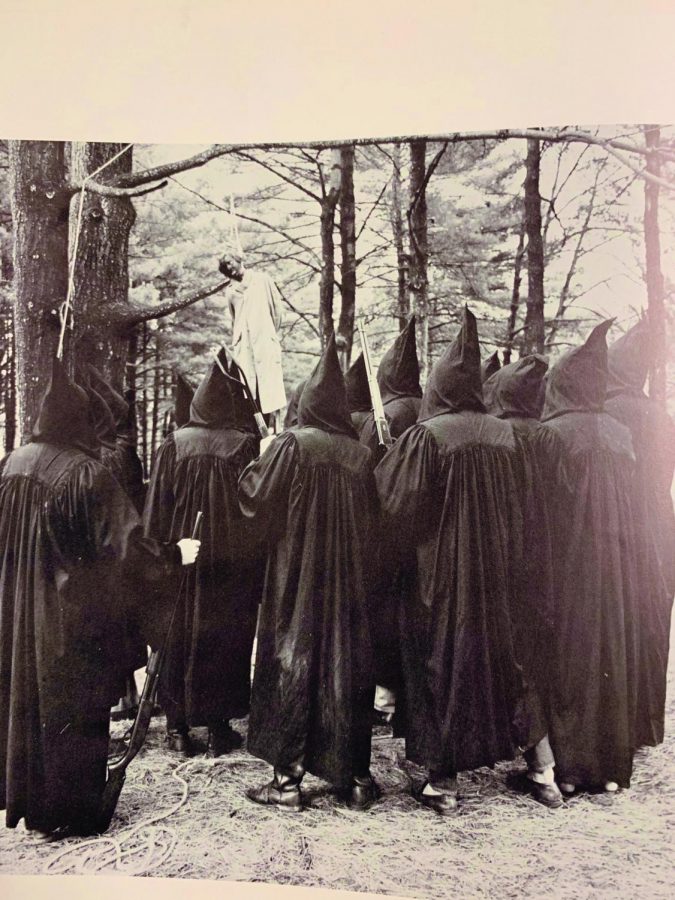Today’s posts will affect future
University of Virginia Chi Psi fraternity members stage a lynching in the 1971 edition of the college’s yearbook “Corks & Curls.” AACC students should scrub their social media accounts of offensive content like this and stop making posts of this nature.
March 1, 2019
AACC students should scrub their social media accounts now to get rid of embarrassing or incriminating photos and information. And consider what you post from now on with an eye to how your actions today might affect your future.
If you believe that your college-age antics won’t come back to bite you 20, 30 or 40 years from now, consider how history is treating Virginia Gov. Ralph Northam.
Northam was recently outed for a photo that appeared in his 1984 medical school yearbook showing a man wearing blackface—dye or shoe polish applied to the face of a white person, usually as part of a costume—posing next to someone wearing a Ku Klux Klan robe and hood.
Northam has denied that he is in the photo, but admitted wearing blackface when he appeared at a 1984 dance contest dressed as Michael Jackson.
The governor has said he will not resign, despite calls from voters and fellow politicians for him to step down.
Amid the controversy, student journalists at the University of Virginia sifted through old yearbooks looking for racially insensitive content.
They found it. Nick Popli, the editor of the student newspaper, The Cavalier Daily, uncovered a staged lynching photo in a 1971 yearbook.
The photo featured a group of hooded Chi Psi fraternity brothers, rifles in hand, gathered around a hanging mannequin, which was wearing blackface.
The insensitive and dehumanizing message of discrimination will not fade as the photo ages, and the University of Virginia’s reputation will be tarnished for years to come.
Whether it’s a racist photo, a homophobic tweet or an insensitive caption, students should understand that their offensive actions are not as temporary as their age.
Those 1971 University of Virginia students likely thought their insensitive antics were a joke at the time.
No one is laughing now.
With modern technology, the newspaper’s editor was able to expose the social injustice in a single tweet.
And that’s how easy it will be for employers to find anything on your social media, from a crude comment you posted yesterday to a racist photo from ages past.
Take five minutes out of your day to scroll through your Twitter, Instagram and Facebook and delete any inappropriate photos or posts.
Then, stop making those sorts of posts.
The mindless jokes you make now won’t just ruin your reputation—now and in the future. They also could ruin the reputation of our school and of its future students, who don’t deserve to take the backlash for something you shouldn’t be doing anyway.












